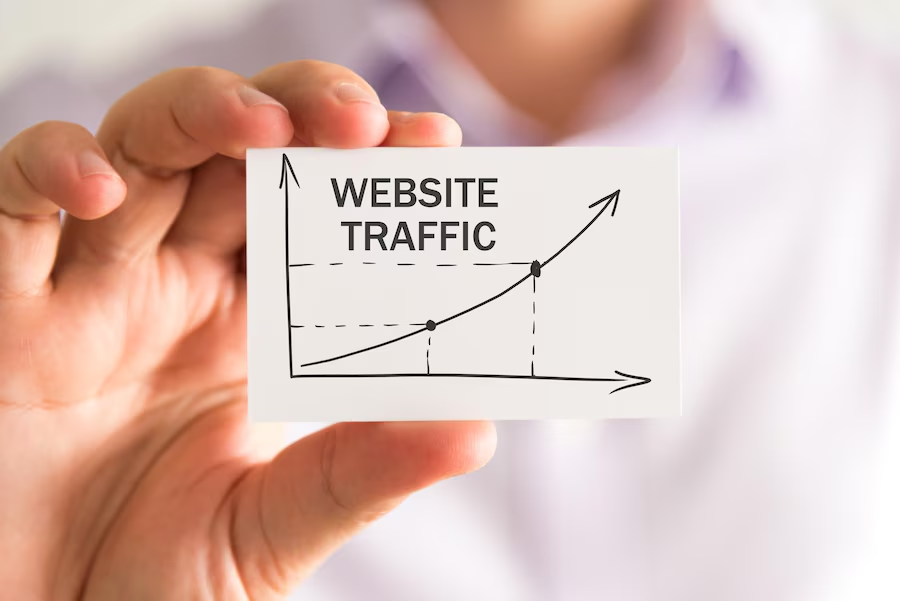How Does Google Find and Rank Your Website?
In today’s digital landscape, getting your website to rank on Google is like competing in a popularity contest where the judges are robots. But these robots aren’t just looking for the flashiest site; they prioritize relevance, authority, and user experience. So, how does Google find and rank your website? Let’s break it down.
Understanding How Google Finds Your Website
Crawling – The First Step to Discovery
Imagine Google’s bots (also called crawlers) as tiny digital detectives constantly scouring the internet, searching for new and updated pages. These bots follow links from one page to another, much like a tourist following street signs in a new city.
If your website isn’t linked anywhere, it’s like an isolated island—Google won’t know it exists. That’s why internal linking, backlinks, and submitting your URL to Google Search Console can give your site the exposure it needs.
Indexing – Storing Your Website in Google’s Database
Once Google discovers your site, it doesn’t immediately show it to users. First, it stores the information in its vast database (aka the Google index). This process is like adding a book to a library, where the system categorizes it based on content, keywords, and relevance.
However, not all pages get indexed. If Google finds duplicate content, broken pages, or poor-quality content, it may choose to ignore them. Ensuring your pages are valuable, unique, and free from errors increases the chances of proper indexing.
The Role of XML Sitemaps and Robots.txt
Think of an XML sitemap as a roadmap for Google’s crawlers. It tells them which pages exist, their importance, and how often they’re updated. On the flip side, a robots.txt file acts as a bouncer, instructing Google on which pages not to crawl.
For example, if you have an admin page or a work-in-progress section, you wouldn’t want it to show up in search results. Managing these files properly ensures Google crawls the right content.
How Google Ranks Your Website in Search Results
Key Ranking Factors Google Considers
Google doesn’t rank pages randomly; it evaluates over 200 factors! Some of the most critical ones include:
- Content Quality – Is your content relevant, valuable, and well-structured?
- Backlinks – Are authoritative sites linking to you?
- User Experience – Is your site fast, mobile-friendly, and easy to navigate?
- Keywords & SEO Optimization – Are you naturally incorporating relevant search terms?
On-Page SEO – Optimizing Content for Search Engines
On-page SEO involves optimizing individual pages to make them more appealing to both Google and users. This includes:
- Using target keywords (like “Google ranking” and “website SEO”) naturally throughout the content.
- Structuring content with headers (H1, H2, H3) for better readability.
- Writing compelling meta titles and descriptions to improve click-through rates.
- Adding alt text to images to enhance accessibility and SEO ranking.
Off-Page SEO – The Power of Backlinks and Authority
Backlinks act as votes of confidence from other websites. The more reputable sites that link to yours, the more Google sees your website as trustworthy.
But beware! Not all backlinks are good. Spammy or low-quality links can harm your ranking rather than help it. Focus on earning links from industry-related, high-authority sources.
Best Practices to Improve Your Website’s Google Ranking
Creating High-Quality, SEO-Friendly Content
Quality content is king! Google prioritizes useful, engaging, and original content. Instead of writing for search engines, create content that genuinely helps readers. Keep it informative, entertaining, and easy to digest.
Enhancing User Experience (UX) for Better Rankings
If visitors bounce off your site faster than a rubber ball, Google takes notice. Improve UX by:
- Ensuring fast load times (nobody likes a slow site!)
- Optimizing for mobile (most users are on their phones!)
- Using clear navigation (so users don’t feel lost!)
Leveraging Technical SEO for Faster Crawling & Indexing
Technical SEO ensures that Google can easily crawl and understand your site. Some key steps include:
- Fixing broken links and redirects.
- Using structured data markup to provide search engines with more context.
- Improving site speed through caching and image compression.
How to Track and Improve Your Google Rankings
Using Google Search Console and Analytics
Google Search Console and Google Analytics are free tools that offer valuable insights into your site’s performance. Use them to track:
- Which pages are indexed.
- How many clicks you’re getting from search results.
- Which keywords bring the most traffic.
Monitoring Keywords and Competitor Performance
Keeping an eye on your SEO factors and competitors can help refine your strategy. Tools like Ahrefs, SEMrush, and Moz allow you to:
- Analyze competitor keywords.
- Discover new ranking opportunities.
- Track changes in search rankings over time.
Adapting to Algorithm Updates and SEO Trends
Google constantly updates its algorithm, so what worked last year might not work today. Stay updated with the latest SEO trends and be ready to adjust your strategy accordingly.
Final Thoughts – Boost Your Visibility on Google
Google ranking isn’t just about stuffing keywords or chasing backlinks. It’s about creating a website that is valuable, user-friendly, and technically sound. By implementing these SEO best practices, you can improve your website indexing, search engine ranking, and overall visibility.
Want to rank higher on Google but don’t know where to start? Contact us for a free consultation, and let’s optimize your website for success!
There you have it—an SEO-friendly, engaging, and humanized blog post that won’t bore readers (or Google’s algorithm). Let me know if you’d like any refinements!
FAQs
How long does it take for Google to rank a new website?
It typically takes several weeks to months for a new website to rank, depending on factors like competition, content quality, and SEO optimization.
Does Google penalize websites for keyword stuffing?
Yes! Overusing keywords unnaturally can lead to ranking penalties. Google prioritizes natural, high-quality content over keyword stuffing.
Can a website rank without backlinks?
While it’s possible, backlinks help establish credibility. A site with strong content and technical SEO can rank, but high-authority backlinks boost rankings significantly.
Do social media links help with SEO?
Social media links don’t directly affect rankings, but they increase traffic, engagement, and brand visibility, which can indirectly improve SEO performance.
Why do rankings fluctuate even after optimizing SEO?
Google’s algorithm updates, competitor activity, and user behavior can all impact rankings. Regular SEO audits and updates help maintain stability.








